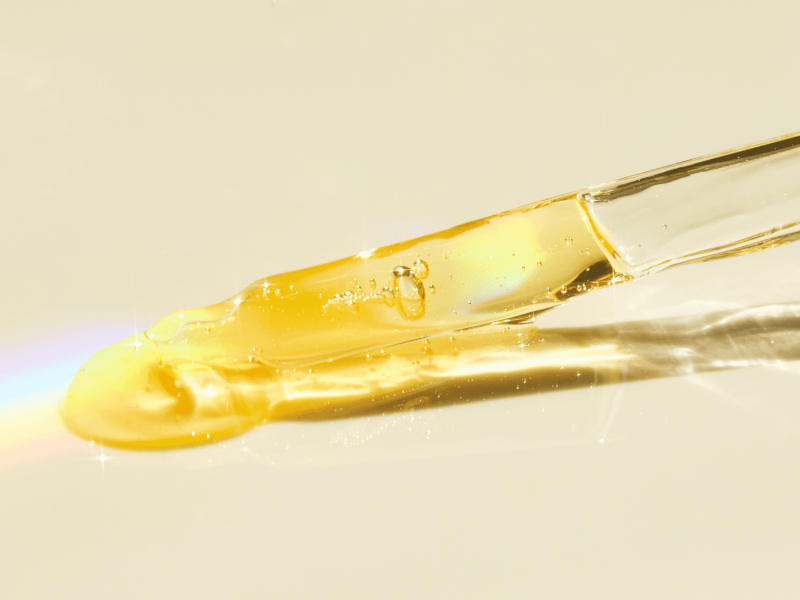
How to Use The Final Takeaway
Oils have slowly taken over our beauty routines. From our daily skincare routines to our after-shower body and hair care, oils can be found in the ingredient lists of moisturizers, cleansers, masks, conditioners, lotions, and creams. But when we talk about oils, specifically those that have a dual purpose and hold space in our kitchens (think olive, avocado, and almond), we can’t help but wonder if they are safe to use on the skin. The answer? Yes—for the most part.
However, as we know, not all oils are created equal. So, can the same be said for canola oil? In true Byrdie fashion, we went straight to the experts for answers. We spoke with two board-certified dermatologists, Elaine F. Kung, MD, FAAD, and Jodi LoGerfo, DNP, APRN, FNP-BC, DCNP, to get the scoop on everything you need to know about the ingredient.
Keep reading to learn more about using canola oil on the skin.
What Is Canola Oil?
Canola oil is a plant-based lipid made from crushed canola seeds. "In some countries, the term rapeseed oil is used to refer to the oil for industrial use, whereas canola oil is used to refer to the edible cooking oil," Kung tells Byrdie. Canola oil can be found in hair care, skincare, and cosmetics due to its nourishing and moisturizing properties.
Compared to other oils, canola oil is relatively new to the scene. Kung says the genetically modified version of the rapeseed plant (aka canola oil) was made in Canada in 1979 for culinary use and is the third-largest source of vegetable oil and the second-largest source of protein meal in the world.
Benefits of Canola Oil for Skin
“[Canola] oil was scientifically proven to help the skin retain moisture by reducing transepidermal water loss because it is semi-occlusive,” Kung explains. “[Canola] oil has a 2:1 ratio of oleic acid to linoleic acid that almost mimics the ratio of healthy skin.” Additionally, rapeseed oil is rich in proteins, phenolics, lipids, and vitamins (think: vitamin E) and is scientifically proven to have antioxidant, anti-inflammatory, and anti-wrinkle properties.
Additionally, LoGerfo shares that because the oil is packed with essential fatty acids and rich in vitamins K, C, E, and antioxidants, canola oil may be considered good for the skin. “Essential fatty acids can moisturize the skin and enhance skin’s strength,” she explains. “Vitamins E and K can potentially help skin issues like acne and aging skin, including lines and wrinkles. Vitamin E can also reduce and protect the skin from free radical damage.” She also notes that vitamin C in canola oil may help with skin hyperpigmentation and blemishes.
Potential Side Effects and Skin Type Considerations
Both experts agree that anyone with acne-prone skin will want to proceed with caution when using products formulated with canola oil. “Canola oil has a comedogenic rating of 4,” Dr. LoGerfo shares. “A comedogenic rating is the ability of an oil to clog human pores. Canola oil, although theoretically useful for acne, should probably not be used in individuals with acne because it does clog pores, which could potentially make acne worse.”
How to Use Canola Oil for Skin
Now that you know canola oil can benefit your skin and hair, you may wonder how to incorporate it into your routine. Because it can clog pores, you may not want to grab the bottle out of your kitchen cabinet and slather it on your skin. Instead, opt for products that include canola oil in the formula.
The Final Takeaway
Canola oil (made from crushed canola seeds) is a plant-based lipid that contains high levels of essential fatty acids, vitamins K, C, E, and antioxidants, which are beneficial in moisturizing skin. Canola oil also acts as a semi-occlusive, meaning it reduces transepidermal water loss and retains moisture in the skin. It can be found in various skincare and haircare products, including moisturizers, creams, lotions, masks, conditioners, and sunscreens. Those with acne-prone skin may choose to steer clear of the ingredient as it may clog pores. It is also advised not to use cooking-grade canola oil on the skin. If you experience irritation, rashes, redness, or persistent breakouts after using a canola oil product, seek a trusted dermatologist's advice.


